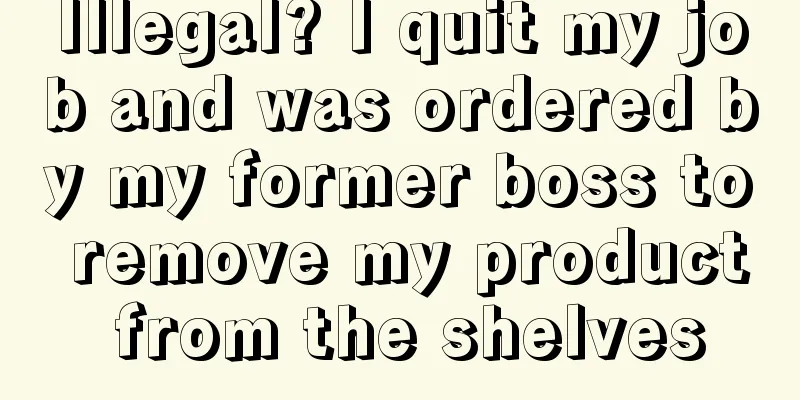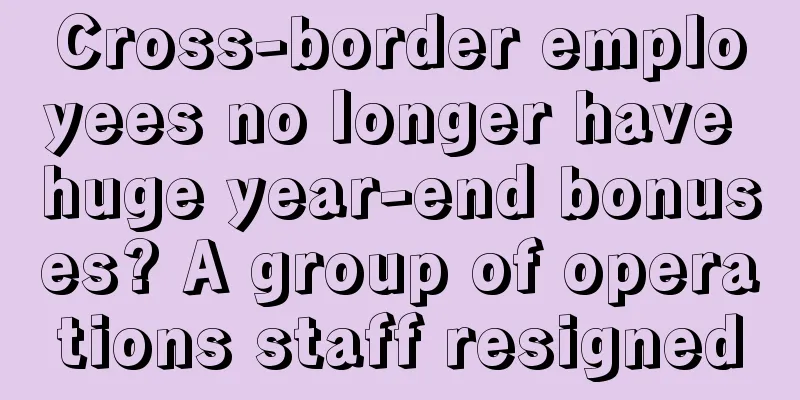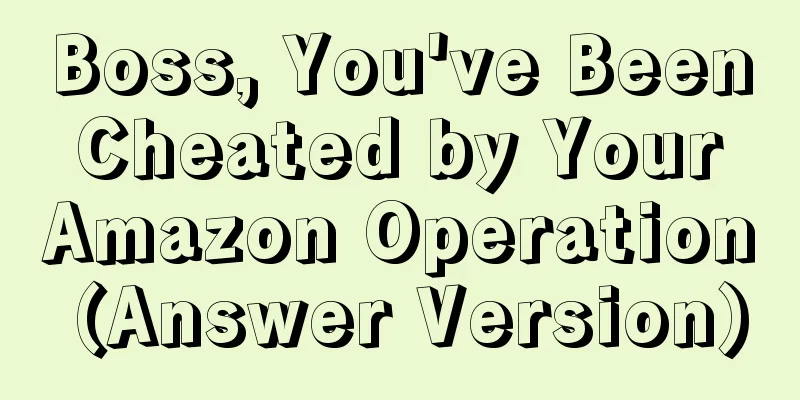Illegal? I quit my job and was ordered by my former boss to remove my product from the shelves

|
Is it profitable to be an operator in a company? The answer is yes, but the prerequisite is that you follow the right people and make the right product. However, following the right boss is a low-probability event and there is nothing much to say. As for the opportunities to make the right products, they are becoming fewer and fewer. Now that Amazon has entered the mature stage of its category, its growth is currently weak. On the one hand, the overall environment is not good and salary growth is getting further and further away. However, on the other hand, with the increase of experience and improvement of ability, the rewards for one's efforts in Amazon operations are getting higher and higher. This imbalance has led to a large number of people who think they have good abilities starting their own businesses. When it comes to starting a business, many people will simply use the better products made by their previous company. The reason is simple: they are familiar with this type of product and have a general idea of the product's pricing, market capacity, competitiveness and other information. But this will also lead to an embarrassing problem, which is that it is very likely to be discovered by your former employer. Yesterday, I saw a post in the Zhiwubuyan e-commerce community that said: An operator resigned before the New Year and started his own business. He put several public model products that were also sold by his former company on the shelves of his store. Now he receives dozens of orders every day. After his former company found out, it asked him to remove the products from the shelves, on the grounds that he had signed a confidentiality agreement before. The operator didn't know what to do. Regarding the original boss's request to remove the products from the shelves, most netizens suggested that the poster stick to the gun. @Anonymous User 1 It's not just the company's products that are being sold, it's public model products, the company has no right to ask you not to sell them. Just tear it back and be tough. @Anonymous User 2 First, you used a public mold, so there is no patent infringement; second, although you signed the confidentiality agreement, the company did not give you any subsidies, so it is invalid; third, you have already resigned, and there are a lot of people making this product, so they are still adding one more person, provided that you have not used the company's resources. Some people even gave solutions to this problem. @Anonymous User 3 Don’t be afraid. You definitely have the data on his fake orders. If he dares to mess with your store, you must immediately send all the evidence of his fake orders to Amazon and make him game over. There are also people who think about this issue from the boss's perspective. @Anonymous user 4 Legally, you are wrong. You cannot do business that conflicts with your former company within two years after leaving. Check it out. There is such a rule. Of course, there are also more constructive opinions, suggesting that the poster clear out the stock. @Anonymous User 5 It is difficult for an individual to compete with a company (resources, accumulation, human efficiency). In terms of product selection, based on personal entrepreneurship, copying a company's products will not bring much benefit, so it is better to clear the stock. From the standpoints of both parties, everyone has their right and wrong. If I were the boss, I would definitely feel unhappy if my employees went out to make products for the company. As an employee, if I went out to make products for the original company that are similar to market goods and not private models, why can't I do it? So the question is, since the operator signed a confidentiality agreement while in office, can he sell the products of his original company after leaving? The editor consulted relevant information and learned that whether an employee can sell the original company's products after leaving the company has nothing to do with whether a confidentiality agreement is signed, but is related to the non-competition clause. From a legal perspective, the obligation of confidentiality is an ancillary obligation of a labor contract. Once an employer and an employee have established a labor relationship, the employee's obligations include keeping the employer's business secrets confidential. Therefore , whether or not a confidentiality agreement is signed does not affect the employee's fulfillment of the confidentiality obligation; whether or not a confidentiality fee is paid does not affect the validity of the confidentiality agreement. It means that the employer and the employee agree that within a certain period of time while employed or after leaving the job, the employee shall not work for other employers that compete with the employer in producing or operating similar products or engaging in similar businesses, or start his own business to produce or operate similar products or engage in similar businesses. According to the Labor Contract Law, if an employer agrees to assume a non-competition obligation with an employee, the employer must pay non-competition economic compensation, and the economic compensation should be paid monthly after the employee leaves the job. Therefore, unless the operator received financial compensation for non-compete clauses from his former company after leaving the company, legally speaking, the poster has no obligation to remove the product. Of course, this also reminds some companies that they must not take it for granted that confidentiality fees during employment can replace economic compensation for non-competition clauses. Otherwise, the company may face the embarrassing situation that it pays the money but fails to achieve the expected non-competition effect. (Part of the material comes from: Zhiwubuyan e-commerce community) (Cross-border sellers teahouse) |
<<: 200 million shortfall! Prices have increased sixfold! Mask resellers are already selling helmets
Recommend
Why is your off-site promotion ineffective and not generating any sales?
Have you encountered the problem of poor off-site ...
A survey of American consumers during the peak shopping season! Amazon has become the preferred shopping platform for 80% of consumers!
According to a study of 1,600 U.S. consumers by di...
What is Webinterpret? Webinterpret Review
Webinterpret (WI) is a technology company headquar...
Amazon advertising bug makes you lose money! If you don’t take the initiative, it’s your brother-in-law’s money.
Before the Chinese New Year, we reported an incid...
What is Profit Bandit? Profit Bandit Review
Profit Bandit is a product research tool for iOS a...
What is AntaresEye? AntaresEye Review
AntaresEye is a product selection tool tailored fo...
A10 algorithm changes are coming! Can your organic ranking still hold up?
With the update of Amazon's A10 algorithm, the...
What are long-tail keywords? A brief discussion on the role of long-tail keywords
Long-tail keywords are easily confused with short...
What is Shopee event selection? Shopee event selection related reviews
Shopee sellers participate in platform promotion a...
Attention! Starting from August 1st, Amazon will terminate this service plan!
Normal, once there is data abnormality, such as s...
With Mexico’s tax reform coming, is this blue ocean market still worth entering?
Recently, some sellers received an email about the...
What is FBA? FBA Review
FBA, the full name is Fulfilment by Amazon, which ...
Ipsos survey: ShopeePay is the most popular e-wallet in Indonesia in October
According to a survey conducted by Ipsos, ShopeePa...
What is Wise Express? Wise Express Review
Wanse Express (Shanghai Wanse Express Co., Ltd.) w...
Orders plummeted, and another new Amazon rule came into effect!
In a flash, the first quarter of 2024 has come to ...









